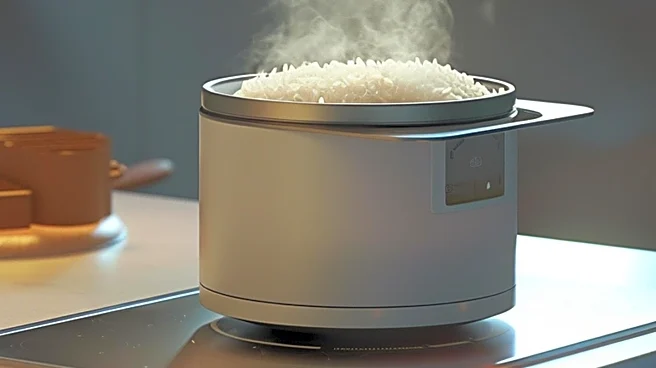What is the story about?
What's Happening?
Indoor air quality is a significant concern, with cooking identified as the primary contributor to indoor air pollution. According to experts, high-heat cooking releases particulate matter, including PM2.5, which can lead to health issues such as respiratory ailments and heart disease. Other household items like gas stoves, HVAC systems, cleaning supplies, wet appliances, candles, incense, and air fresheners also contribute to poor air quality. These items release volatile organic compounds (VOCs) and other pollutants that can exacerbate health problems. Experts recommend using air purifiers, maintaining HVAC systems, and opting for low-fragrance cleaning products to mitigate these effects.
Why It's Important?
The impact of indoor air pollution is profound, affecting millions of Americans who may not realize the extent of pollution within their homes. Poor air quality can lead to chronic health issues, increasing healthcare costs and affecting quality of life. Understanding the sources of indoor pollution empowers individuals to make informed decisions about their living environments. This awareness can drive demand for cleaner technologies and products, influencing market trends and regulatory policies aimed at improving air quality standards.
What's Next?
Homeowners and renters are encouraged to take proactive steps to improve indoor air quality. This includes regular maintenance of HVAC systems, using air purifiers, and choosing environmentally friendly cleaning products. As awareness grows, there may be increased advocacy for stricter regulations on household products that contribute to air pollution. Additionally, advancements in AI-powered air quality monitoring tools could provide more precise data, helping individuals and policymakers address pollution sources effectively.
Beyond the Headlines
The issue of indoor air pollution highlights broader environmental and health challenges. It underscores the need for sustainable living practices and innovations in home design and appliance technology. The cultural shift towards healthier living environments may also influence real estate markets, with demand for homes equipped with advanced air quality systems potentially increasing.

















